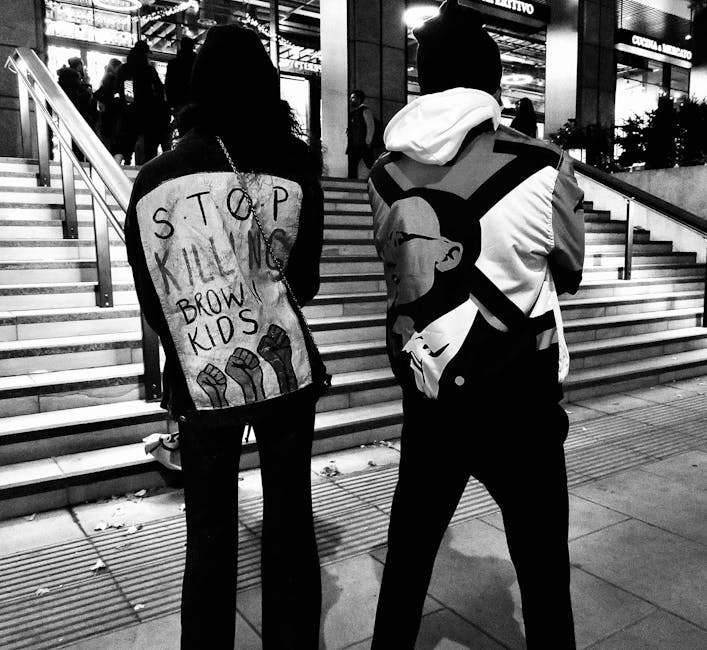Table of Contents
You ever wonder about the folks they make movies about? The ones where the truth gets all tangled up with legend, where you can’t quite tell where one ends and the other begins. I do. All the time, actually. Gets you thinking about what really matters, what gets remembered. Some people, their lives just got more stories than a dog’s got fleas.
Take a character like Bumpy Johnson. Ellsworth Raymond Johnson, a name that just slides off the tongue, doesn’t it? A real man. Not some made-up bloke for a paperback novel, no. He walked the streets of harlem, breathed the same gritty air as everyone else. A lot of folks, they only know him from the silver screen, or from a series that took a fair few liberties, mind you. But the man was a figure, a proper figure in New York’s underworld, especially Harlem, for decades. People ask me, was Bumpy Johnson a real person? And I just shake my head, thinking, bless your cotton socks, of course he was. You don’t make up a guy with that much grit, that much smarts, out of thin air. You just don’t. He was as real as the pavement under your feet.
My experience with these kinds of stories, the ones about figures who live on the edges of society, well, they usually boil down to one thing: brains. You don’t last long being a simple brute. And Bumpy Johnson? He had brains in spades, you could tell that much. He wasn’t just some muscle-bound hoodlum. He was known for being a thinking man, a strategist. They called him the “Godfather of Harlem,” and that wasn’t for nothing, was it? It was about respect, about power, yeah, but also about a kind of order he brought, or tried to bring, to his corner of the world. He got a reputation for fairness in a world that wasn’t fair at all. Some would say he was a gentleman. Others, not so much. He was a paradox, that one.
The Harlem Streets and the Early Hustle
Born down in Charleston, South Carolina, but he landed in Harlem as a young lad. That was the roaring twenties, the Harlem Renaissance in full swing, music spilling out of every club, folks dreaming big. But underneath all that sparkle, there was the grind. There was poverty. And there was opportunity, if you knew where to look, or if you were willing to create it. He wasn’t afraid of a bit of a scrap, mind you, and he quickly made his name on the streets. He started out small, like most of ’em do, doing odd jobs, hustling, until he caught the eye of bigger fish. He wasn’t one to shy away from a problem.
People sometimes ask me what Bumpy Johnson was known for, what he actually did. Well, the list is a long one, ain’t it? Bootlegging, gambling, numbers rackets, protection schemes. You name a vice, he probably had a piece of it, or knew someone who did. But what really set him apart, I reckon, was his head for business, for organization. He saw the big picture, not just the quick buck. He understood leverage before it was a fancy word in a boardroom. He knew how to talk, how to negotiate, how to make alliances. Sometimes he’d make a deal, sometimes he’d just take what he wanted. He was adaptable, that’s for sure.
Dutch Schultz and the Truce
Now, here’s a bit of history that often gets glossed over. You wonder, did Bumpy Johnson work with anyone famous? Oh, he rubbed shoulders alright, not always in a friendly way. Think about the likes of Dutch Schultz, that notorious New York gangster, a German-Jewish mob boss who wanted to muscle in on Harlem. Schultz was a real nasty piece of work, a violent fella, no two ways about it. He figured Harlem was ripe for the taking, easy pickings. But Bumpy wasn’t having any of it. He stood his ground. There was a bloody turf war, a real mess, bodies dropping on both sides. Harlem was a war zone for a bit.
But Bumpy, he wasn’t just a fighter. He was smart enough to know when to talk. He went right to the top, apparently, spoke with Lucky Luciano himself, the big boss of the Mafia Commission. And a truce was struck. Harlem, mostly, stayed Bumpy’s territory. Schultz, well, he got clipped not long after that, nothing to do with Bumpy, but it certainly cleared the air. That story right there, it tells you a lot about Bumpy Johnson. He was respected by the top brass, even the Italian families, which wasn’t an easy thing to earn in those days, not for a Black man. He had that kind of pull. Or maybe, he was just too much trouble to fight. Hard to say sometimes, isn’t it?
The Harlem Community and His Reputation
His image, it’s a funny thing, isn’t it? Some folks, they paint him as this Robin Hood type, always looking out for his community, giving back to the poor. And there are stories, plenty of ’em, about him helping out families, paying for funerals, even giving a leg up to local businesses. He was definitely seen as a figure of authority in Harlem, someone you went to if you had a problem, sometimes even before you went to the cops. A lot of that had to do with how the law treated Black communities back then, or didn’t treat them, if you catch my drift.
But let’s be straight, he was a criminal. He made his living off of things that hurt people, off of addiction and desperation. You can’t get away from that. So, this “gentleman gangster” thing, it’s a bit of a stretch, a nice story we tell ourselves to make sense of a complicated man in a complicated time. He could be ruthless, absolutely, if you crossed him. I mean, you don’t run an outfit like that by being a soft touch. He had a mean streak, no doubt about it. It’s the way the world worked. You had to be tough to survive, let alone thrive.
Family and the Personal Side
Even a man like Bumpy, with all that going on, had a life outside the streets, a family. His wife, Mayme Johnson, wrote a book about him, gives you a different view, you know? Less about the gunfights and more about the man she lived with, the husband, the father figure to their adopted daughter, Elease. That’s a side of him you don’t always hear about in the sensational stories. It makes him more real, don’t it? Not just some flat character from a history book. He apparently had a soft spot for kids, too. It’s hard to reconcile that with the brutal business he was in. But then again, people are rarely just one thing, are they? We all wear different hats.
The Decline and His Final Years
For a man in his line of work, Bumpy lived a surprisingly long time. Most of ’em, they don’t see forty. But Bumpy, he saw a lot more. He spent a fair bit of time in prison, too, did a few stints, the longest one being almost fifteen years at Alcatraz. That must’ve been a mind-bender, going from the king of Harlem to a number in a concrete box. I often wonder what that did to a man like him. Did it soften him? Did it make him harder? Probably a bit of both, I reckon.
So, how did Bumpy Johnson die? Not in a hail of bullets, no dramatic shootout like in the films. He died of a heart attack, actually. Sitting at a soul food restaurant, Wells Restaurant, in Harlem. Just keeled over, eating some grits and chicken. Imagine that. A man who faced down the toughest gangsters, who survived turf wars and prison, goes out quietly, eating dinner. That was in 1968. A quiet end for a man who lived such a loud life. Funny how life works out sometimes, isn’t it?
What Happened to the empire?
When a big figure like him goes, especially one who held things together with sheer force of personality and smarts, well, things don’t usually stay neat and tidy, do they? What happened to his empire after him? It fractured, like most do. There wasn’t anyone with his particular blend of street smarts, connections, and strategic vision to step right into those shoes. The landscape of the underworld was changing too, new players, new drugs, different ways of doing business. The old ways were fading. Things got more chaotic, more violent perhaps. His kind of personal rule, that just wasn’t the future of crime, I suppose. The era of the “gentleman gangster” was well and truly over.
His Lasting Shadow and the Stories We Tell
Even all these years later, the name Bumpy Johnson still gets flung out there. He’s part of the fabric of Harlem’s history, whether folks like it or not. He represents a certain time, a certain way of life that, while brutal, had its own twisted code. His story, it keeps getting re-told, re-imagined. You see him pop up in films, in TV shows, sometimes a major character, sometimes just a nod. He’s become bigger than life in some ways.
I’ve always believed that what people choose to remember about a historical figure says more about us than it does about them. We pick out the bits that fit our narrative, don’t we? The loyalty, the smarts, the defiance against a system that was stacked against you. We sometimes forget the brutal parts, the violence, the lives ruined by the very businesses he ran. It’s all part of the human condition, I guess, this need to simplify things, to make heroes or villains out of complex real people. Bumpy Johnson was no hero, not in the traditional sense, but he wasn’t just a villain either. He was a survivor, a product of his environment, a legend in his own time, and still, a figure that makes you scratch your head and wonder. He leaves you thinking, don’t he? And that, for a fella like him, is quite a legacy.












